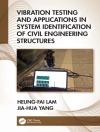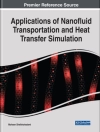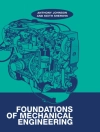This book provides a systematic description about the development of Isogeometric Topology Optimization (ITO) method using the density, and then addresses the effectiveness and efficiency of the ITO method on several design problems, including multi-material structures, stress-minimization structures, piezoelectric structures and also with the uniform manufacturability, ultra-lightweight architected materials with extreme bulk/shear moduli, auxetic metamaterials and auxetic meta-composites with the NPRs behavior in microstructures. A detailed MATLAB implementation of the ITO method with an in-house code “Iga Top” is also presented.
Tabela de Conteúdo
Introduction.- Density-based ITO method.- Density-based Multi-material ITO (M-ITO) method.- ITO for structures with stress-minimization.- ITO for piezoelectric structures with manufacturability.- ITO for architected materials.- ITO for auxetic metamaterials.- M-ITO for auxetic meta-composites.- An in-house Matlab code of “Iga Top” for ITO.
Sobre o autor
Jie Gao is a faculty of Department of Engineering Mechanics, School of Aerospace Engineering, Huazhong University of Science and Technology (HUST), Wuhan, China. He received Ph D degree from joint program of HUST and University of Technology Sydney, Australia in 2019. He is the guest editor of the special issue of the International Journal of Symmetry on “New Advance of Methods and Applications in Topology Optimization and Symmetry” in 2021-2022. He is a member of International Society for Structural and Multidisciplinary Optimization (ISSMO), a member of Mechanics Society of Hubei Province and also a member of Mechanics Society of China. His main research area is the topology optimization, mainly including the developments of topology optimization methods and applications in many design problems of multiscale composite structures, architected materials, auxetic metamaterials, etc. Over the last 5 years, he published nearly 20 SCI-indexed journal papers.
Liang Gao is a Professor at the School of Mechanical Science and Engineering, Huazhong University of Science and Technology (HUST), Wuhan, China. He is an Associate Director of the State Key Laboratory of Digital Manufacturing Equipment and Technology (DMET). He is a member of the Operations Research Society of China, Artificial Intelligence Society of Hubei, Operations Research Society of Hubei and Mechanical Engineering Society of Hubei. He was also the guest co-editor of the special issues of International Journal of Advancements in Computing Technology on “Particle Swarm Optimization and Applications” in 2011 and International Journal of Advanced Manufacturing Technology on “Process Planning and Production Scheduling in Sustainable Manufacturing” in 2012. He was a referee for the International Journal of Production Research, International Journal of Computer Integrated Manufacturing and other related international journals. His main research areas are the modern optimization method and its applications in mechanical design and manufacturing. Over the last 5 years, he has published 2 books and 53 papers in respected journals. He has received a number of awards, including the Ministry of Education Natural Science Award first prize in 2013 and the Chinese Mechanical Engineering Society Youth Science and Technology Achievement Award in 2013. He was selected for the Program for New Century Excellent Talents in University by the Ministry of Education in 2008.
Mi Xiao received his Ph D degree in Industrial Engineering from Huazhong University of Science and Technology (HUST), Wuhan, China in 2012. He is currently an Associate Professor in School of Mechanical Science and Engineering, HUST. He is an ASME/IEEE member. He was the guest co-editor of the special issue of International Journal of Materials and Product Technology on “New Advances on Topology Optimization” in 2019, and is currently an Associate Editor of IET Collaborative Intelligent Manufacturing. His research interest is structural optimization design, mainly including topology optimization. He has published more than 70 SCI-indexed journal papers, in journals such as Nature Communications, Computer Methods in Applied Mechanics and Engineering, Reliability Engineering & System Safety, and Structural and Multidisciplinary Optimization.












